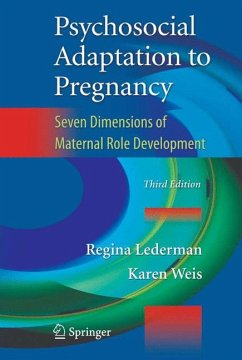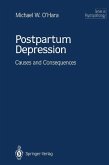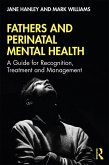Regina Lederman, University of Texas Medical Branch, Galveston Karen L. Weis, USAF School of Aerospace Medicine, Brooks City-Base TX
The links between a pregnant woman's physical health and her baby's subsequent development are widely known. Less well understood are the behavioral and emotional processes that develop during the same nine months. In Psychosocial Adaptation to Pregnancy, seven dimensions of maternal emotional health are identified-including acceptance of the pregnancy, motivation to take on the role of motherhood, relationships with husband/partner and with her own mother, preparation for labor, self-esteem, and sense of control-that have significant impact on delivery, postpartum adaptation, infant health, and early childhood development. Backed by the authors' original research and interviews, the book provides readers with a first-of-its kind analysis of the role of these core functions throughout pregnancy, as well as practical materials for use with pregnant clients in the form of assessment tools and evidence-based interventions for promoting positive development. It is particularly noteworthy that the Surgeon General of the United States has recommended measurement of prenatal psychosocial and behavioral risk factors to improve the screening of psychosocial risks and responses for purposes of addressing these risk factors.
Key features of the book:
Theoretical framework with rationales for the seven psychosocial dimensions.
How these phenomena may differ between first and later pregnancies.
Assessment instruments with excellent properties, including the Prenatal Self-Evaluation Questionnaire and the Postnatal Self-Evaluation Questionnaire.
Therapeutic and counseling intervention strategies to improve adaptive development in each of the seven psychosocial dimensions.
Findingsspecific to women in diverse cultural groups, plus a chapter devoted to women in the military and military spouses.
Discussion of salient issues of pregnancy, including physical changes, body image, intimacy, trust, and ambivalence.
Psychosocial Adaptation to Pregnancy is a significant addition to the psychosocial assessment literature, a needed resource for clinical and health psychologists, clinical social workers, marriage and family therapists, professional counselors, and obstetrical nurses. It is also adaptable to undergraduate and graduate courses in maternal reproductive health and obstetrical nursing. The course can be taught as an assessment and intervention workshop, and as a continuing education course throughout the U. S.
Dieser Download kann aus rechtlichen Gründen nur mit Rechnungsadresse in A, B, BG, CY, CZ, D, DK, EW, E, FIN, F, GR, HR, H, IRL, I, LT, L, LR, M, NL, PL, P, R, S, SLO, SK ausgeliefert werden.









